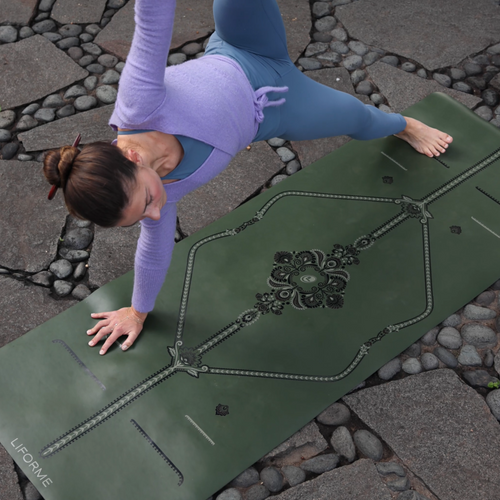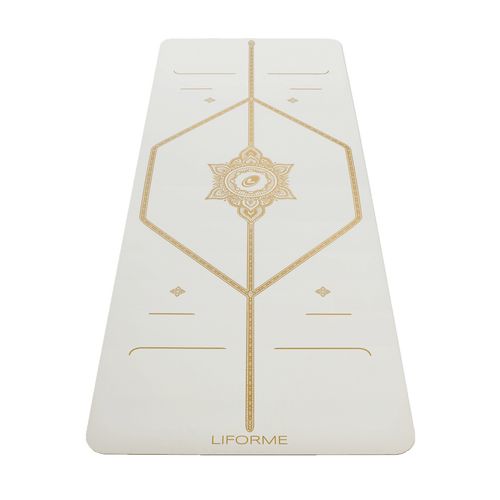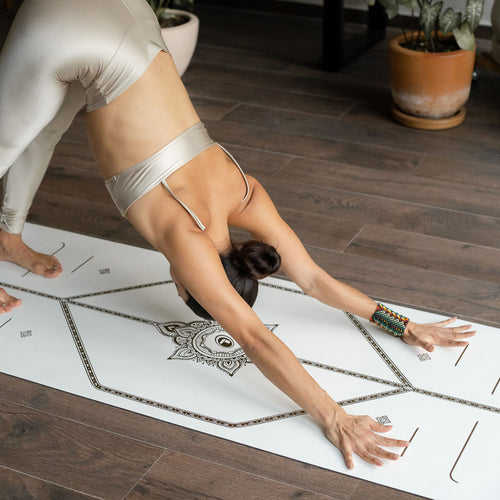People often say 'follow your bliss', but we prefer 'foster your joy'. You might think that joy is something that rises spontaneously and can’t be controlled, but it’s actually possible to create circumstances under which joy can flourish and grow. Joy happens during time with family and friends, in the mundane moments of contentment after dinner is on the table, in seeing your dog return with the ball every. single. time.
Actively seeking moments of joy throughout your day and stringing them together like stepping stones can lead to happiness. If you're not sure how to find more joy, here are 9 ideas to try.

9 Ways to Foster Joy
1. Sing. Chant. Listen to others sing and chant.
We’re not all blessed with lovely singing voices, but it really doesn’t matter what you sound like when you’re bellowing along with the radio in your car. Singing feels good, and research shows it can release hormones like endorphins and oxytocin. If you like to sing in public, joining choruses, choirs, or chanting groups adds to the good feelings by strengthening human connection and community.
Chanting itself may also have mood-elevating benefits; researchers have discovered it can stimulate the vagus nerve in a way that counters depression. Listening to music also affects your disposition. Turn up your favourite song in your headphones and smile at strangers. Go to live music shows and concerts. It doesn’t matter who’s playing, as long as it makes your heart swell.
 2. Move.
2. Move.
You can dance if you want to. You can also run, swim, walk, spin, or do yoga, which is particularly effective in relieving tension and stress. Moving your body and giving your mind the opportunity to take a break allows for a lighter, brighter mood to emerge. Exercise actually helps the brain produce more of the neurotransmitters serotonin and norepinephrine, which carry messages throughout your nervous system that make you feel better.
If exercise feels like a chore, try something new. Sign up for a series of classes if you like to be held accountable. Build exercise into your commute by walking or biking to work. Join a gym with a pool and lots of different classes if you like to have options. Keep trying until something sticks and then make a routine of it. Exercising outside offers additional benefits, including boosting your body’s natural production of Vitamin D, which helps strengthen your bones, prevent illness, and may even ward off depression.
 3. Be in nature.
3. Be in nature.
The world outside is awesome. Hike, swim in a lake, walk on the beach, hug a tree, take a forest bath. If you live in a big city, take your lunch break on a park bench. Cultivate your own garden if you like to grow things. Make time to watch a sunset. If you live in a cold climate, schedule outdoor time in the warmest part of the day and suit up appropriately when exercising outside. There’s a reason why mid-winter yoga retreats are so popular! That timely dose of sunshine and movement can help tide you over until spring arrives.
4. Make something.
Make a doodle during a meeting, knit a scarf, string beads for a necklace, bake a batch of cookies. Doing something with your hands that results in something new in the world is very satisfying. Be creative. Write a poem, take photographs, rearrange the furniture. Plop down and make a drawing like you used to when you were a kid. Make gifts. The aforementioned baked goods, knitware, and photos all go over extremely well.
5. Enjoy delicious foods.
Both the sense of taste and the context of eating with friends and family are occasions for joy, not to mention the pleasure of preparing something good to eat. Having a healthy relationship with food includes acknowledging that smell and taste are sources of enjoyment. So, eat well and with relish. (Preferably small-batch, locally-sourced, house-made, naturally fermented, probiotic-laden relish!)
 6. Read a book.
6. Read a book.
If it’s been a while since you read a book, we can’t recommend it enough, especially if you are a news junkie and have become consumed with keeping with the latest headlines. Reading a book is different. Read fiction, biography, philosophy. Read for pleasure to get lost in another world. Read to self-educate, to get context for current events, to motivate, to spark ideas. Get a library card and read for free.
 7. Cuddle.
7. Cuddle.
You probably won’t be surprised to hear that snuggling induces your brain chemistry to produce serotonin and dopamine. Touching another living being (partner, child, friend, pet) makes us feel connected and lets the love flow. If you don’t have a cuddle buddy, massages can have the same effect.
8. Give meaningful compliments.
Receiving compliments is nice but it also feels really good to give them. Most of our compliments are about how people look. Try to find ways to commend people that goes beyond their physical appearance. Praise a co-worker for a job well done or a thoughtful insight. Sincerely thank a shop clerk for their efforts when they go out of their way to help you. Tell your friends why they are so special to you.
9. Help a little. Help a lot.
It feels good to be helpful in even the tiniest ways. Holding doors for people, helping a mom with that unwieldy stroller on the stairs, letting someone go ahead of you in line or when merging into traffic. These are all very easy things to do regularly.
If you can, there are also ample opportunities to volunteer on a larger scale. Choose a cause to which you have a personal connection, whether it’s health, community building, disaster relief, education, or animals. Giving freely of your time and efforts in honour of something you care about is as personally satisfying as it is beneficial to the recipients.





































